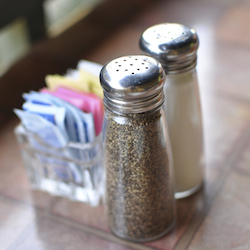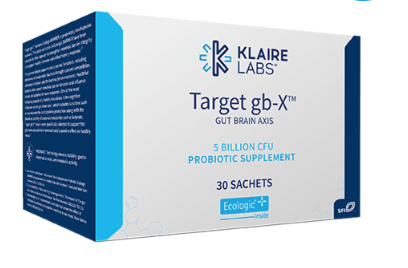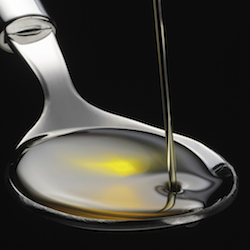 Kim Stewart
Kim Stewart
Omegas and Autism: 3 Studies Show Promise for Some Spectrum Disorder Symptoms
As parents and pediatricians struggle to find effective therapies for children with autistic spectrum disorders, researchers are honing in on the mechanisms of Omega fatty acids in brain development for this complex systemic condition. We’ve collected some recent studies on Omegas and autism that show promise.
Glutathione: Physiological and Clinical Relevance
As the risk of exposure to persistent organic pollutants (POPs) grows, research is looking at the role of glutathione and modulating disease risk. Joe Pizzorno ND and Joseph Katizinger ND review glutathione (GSH) and how altered GSH status has been implicated in a number of chronic, acute, and age-related diseases, as well as the aging process itself. In this review, the authors briefly describe glutathione physiology and the clinical implications of altered GSH homeostasis, as well as research on the use of various forms of glutathione as a therapeutic strategy. By Joe Pizzorno ND and Joseph Katzinger, ND, published in J of Restorative Medicine, Vol. 1, No. 1
Partnering with Pharmacists Reduces Readmission Rates for Patients on High-Risk Meds
This retrospective study from Mayo Clinic shows that enhancing the relationship between patients and pharmacists could significantly lower readmission rates by up to 50% for patients taking at least one high-risk medication. The three-year study at tertiary care center reviewed outcomes among patients who did or did not have aRead
Human Clinical: Selenium Yeast Reduces Oxidative Stress In Men
For the first time ever, researchers have made a significant positive connection between biomarkers of oxidative sress, a standardized form of selenium-enriched yeast and reduced prostate cancer risk. Results from long-term clinical trial suggest that selenium-enriched yeast (SY), in a dose-dependent, standardized form from SelenoExcell, but not selenomethionine (SeMet) may be effective at reducing prostate cancer risk. This study confirmed reductions in biomarkers of oxidative stress following supplementation with the standardized form of SY but not SeMet in healthy men. By John P Richie Jr PhD, Karam el-Bayoumy PhD et al, published in Cancer Prevention Research, August 2014.
Retrain the Brain for Healthier Eating
Link Between Artificial Sweeteners and Diabetes
Pink, yellow, or blue? Each of these non-caloric sweeteners may be contributing to the global epidemic of diabetes. The study published in Nature today (Sept. 17, 2014), shows the non-nutritive sweeteners, saccharin, sucralose and aspartame, could actually hasten the development of glucose intolerance and metabolic disease. The mechanism is surprising: these no-calorie sweeteners change the composition and function of gut microbiota. The researchers found the results so compelling they went so far as to call for a reassessment of non-nutritive sweeteners. By Eran Segal, Eran Elinav, published in Nature, Sept. 17, 2014.
Klaire Labs (SFI USA) Announces Availability of Target gb-X™
Reno, NV— Klaire Labs (SFI USA) today announced availability of Target gb-X™ with Ecologic BARRIER, a unique 9-strain blend to support positive mood. This shelf stable, 5B CFU probiotic was specifically designed to influence the gut-brain axis through defined mechanisms including strengthening of the gut barrier function, modulation of cytokinesRead
Inside Look at Establishing an Integrative Health and Wellbeing Program
Editor’s Note: The following is from Alka Gupta, MD, and Chiti Parikh, MD, Co-Directors, Integrative Health and Wellbeing, New York-Presbyterian and Alumni of the Leadership Program in Integrative Healthcare at Duke University. Gupta and Parikh take readers through their plans, from inception to completion, to create an integrative healthcare programRead
WHITE PAPER: Managing the Metabolic Processes of Osteoarthritis with Medical Foods
Osteoarthritis is characterized as a chronic condition, whereby cartilage tissue that cushions joints breaks down, causing stiffness, pain and loss of joint movement. It is a gradually occurring condition that is often perceived by patients as a nuisance and a normal symptom of aging, until the stiffness and pain becomeRead
Extra-Virgin Olive Oil Polyphenols Improve HDL
Olive oil polyphenols are know for beneficial properties that reduce cardiovascular risk factors. Consumption is a cornerstone of the Mediterranean diet for its ability to produce health high-density lipoprotein profiles (HDL). However, data on polyphenol effects of HDL quality are scarce. This study assessed whether polyphenol-rich olive oil consumption could enhance the HDL main function, its cholesterol efflux capacity, and some of its quality-related properties, such HDL polyphenol content, size, and composition. The results once again show extra-virgin olive oil’s capacity for improved health. This article also give you some healthy advice from Today’s Practitioner editor as to how to tell your patients to buy good quality extra-virgin olive oil. By Alvaro Hernaez et al, published by the American Heart Association, Sept. 2014.














